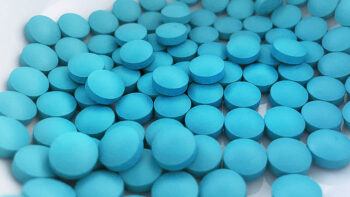
Along with investigating the usage of additive manufacturing, researchers will work to take care of the medicine’ integrity and effectiveness.
Jesus A. Reina/Texas A&M Engineering
Researchers at Texas A&M College will spearhead a groundbreaking undertaking to revolutionize remedy administration for pediatric sufferers, due to an roughly $3 million grant from the Nationwide Institutes of Well being (NIH).
This pioneering initiative explores utilizing additive manufacturing, or 3D printing, to create personalized tablets tailor-made to the distinctive wants of younger youngsters. The undertaking is an interdisciplinary collaboration of consultants from the School of Engineering, the School of Pharmacy and the Faculty of Veterinary Drugs and Biomedical Sciences.
Conventional manufacturing strategies yield mass-produced medicinal tablets with standardized dosages and sizes. Nonetheless, on account of their incessantly altering weight and dosage necessities, pediatric and geriatric sufferers want better flexibility in administering drugs successfully.
Dr. Mathew A. Kuttolamadom, co-principal investigator and affiliate professor from the Division of Engineering Know-how and Industrial Distribution, and his staff will work on a producing methodology that adapts to the evolving wants of pediatric sufferers, starting from infants to 17-year-olds, by tailoring remedy dosage and pill dimension accordingly.
Along with investigating the usage of additive manufacturing, the staff will work to take care of the medicine’ integrity and effectiveness.
“The additive manufacturing of prescribed drugs presents a comparatively new course of that differs considerably from the additive manufacturing of metals or ceramics,” Kuttolamadom stated. “Our main problem lies in comprehending this novel course of and unraveling the distinctive elements particular to prescribed drugs. Overcoming these challenges is crucial as we try to advance the sector and make sure the drug’s efficacy stays intact all through/past the manufacturing course of.”
Conventional mass-produced drugs lack flexibility, which is required in pediatric oncology. By leveraging the capabilities of 3D printing, drugs might be personalized by way of dimension and dosage and the mixture of a number of medicines inside a single pill.